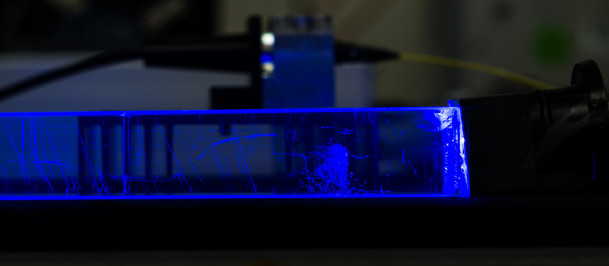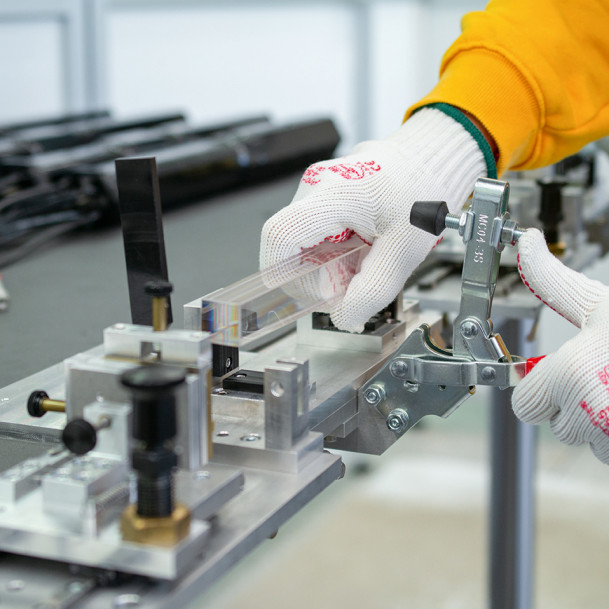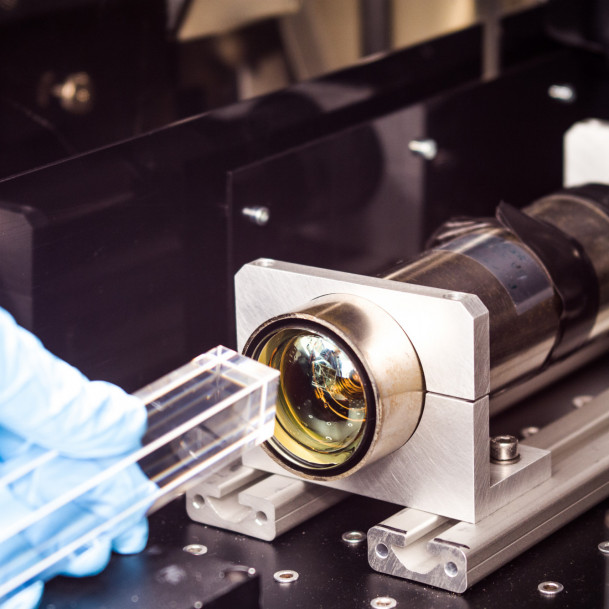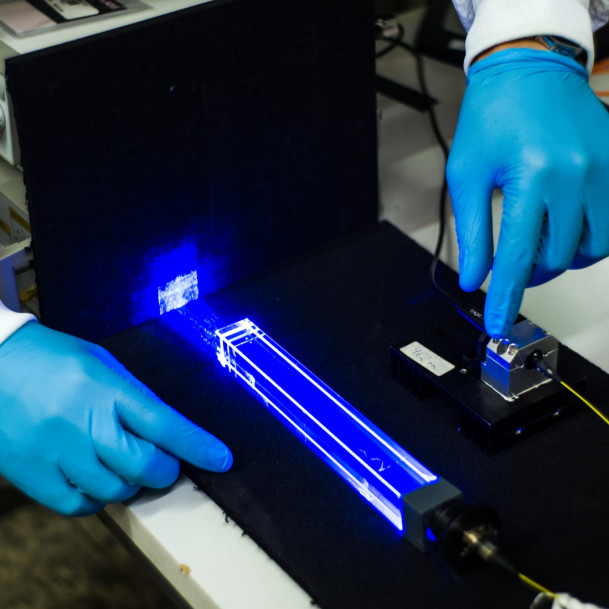Innovation Labs
The Justus-Liebig-University in Gießen receives about 7.8 million Euros for two new innovation laboratories. This is the biggest funding which has been appropriated within the ERDF program of the Hessian Ministry of Higher Education, Research, Science and the Arts.
Basic materials are the stuff that all components and technologies are made from. It is a costly and time-consuming endeavor to research new materials with highly specialized properties, to develop new materials for specific applications and to have the suitable infrastructure available to do so. The two new innovation laboratories at the Justus-Liebig-University (JLU) Gießen are designed exactly for this purpose and will expand the university’s core competencies in the fields of physics, chemistry, and materials sciences.
The installation of the two innovation labs at the JLU is funded by means from the European Regional Development Fund (ERDF). In July, the Hessian Minister of State for Higher Education, Research, Science and the Arts, Ms. Angela Dorn, herself presented the grant notification for a total of almost 7.8 million Euros to the responsible professors Sangam Chatterjee and Peter J. Klar: ”The two innovation projects are outstanding and path-breaking ventures,“ the minister pointed out: “Together, the European Commission and the Justus-Liebig-University as well as leading enterprises invest in research and development and with that into the world of tomorrow.”
The innovation lab as multiplicator in high-technology
About two thirds of the funds go to the innovation lab “Advanced High-Performance Materials”. Here, new, lighter and more resilient materials will be developed, for example for automotive engineering or aeronautical applications, which will also advance the progress in environmental-friendly electromobility. In the years to come, it is intended to create a unique research and development infrastructure which will strengthen the field of competence at the university for one thing. For another, as a point of intersection between fundamental university research and industrial product development based on materials, the innovation lab will provide the enterprises in Hesse with opportunities for longterm collaboration in the development and definition of high-performance materials.
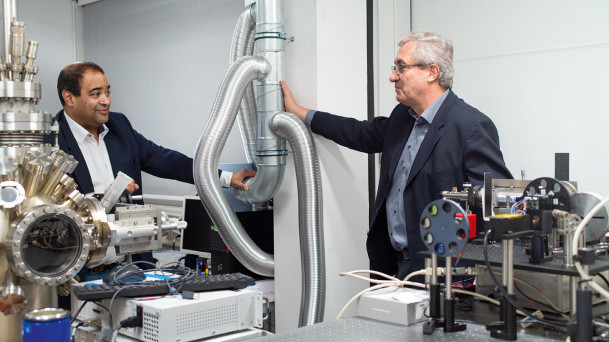
Professors Sangam Chatterjee and Peter J. Klar,
who are in charge of the two innovation labs.
“It was already during the preliminary stages of the application process that six companies with a worldwide reputation confirmed their active involvement in this ERDF project,” explained Prof. Peter J. Klar. “Specific subprojects with mutual research interests have already been defined as pilot experiments.” Such a target-oriented collaboration unlocks synergy potentials in the research and development work on substances and materials. “This makes the innovation lab a multiplicator in high-technology,” adds Prof. Dr. Sangam Chatterjee. “Thus, we can give advice and support to the development of new technical processes and technologies in a scientific manner and accelerate the implementation of scientific findings into products together with the industries.”
Top-level research in the sector of materials sciences
The same applies for the innovation laboratory “Physics under Harsh Conditions” which combines the expertise in astronautical physics, plasma research, and materials sciences. The lab focuses on studying materials, the components built from them and even complete systems under the influence of extreme conditions, for example with regard to “radiation hardness” or electromagnetic compatibility. Under the umbrella of the innovation laboratory, male and female researchers will also collaborate with partners from the industries: For instance, they are currently building a test system to try jet engines and small satellites for electromagnetic compatibility under space conditions – this is unique among German universities.
The top-level research in the sector of materials sciences has an extremely complex and interdisciplinary orientation. And with their two innovation laboratories, the Justus-Liebig-University Gießen will rank among the top-players. “These projects illustrate the innovational strength of the Justus-Liebig-University Gießen in the technologies of the future,” emphasizes JLU president Prof. Dr. Joybrato Mukherjee – adding: “Research and development as well as knowledge transfer are irreplaceable driving forces for innovations from our region, especially in these challenging times.”
INNOVATION LABS
The Innovation Labs at Justus Liebig University Giessen are funded by the European Union – European Regional Development Fund (ERDF) and the Hessian Ministry of Higher Education, Research, Science and the Arts.
Additional Information:
www.uni-giessen.de/inlabs
